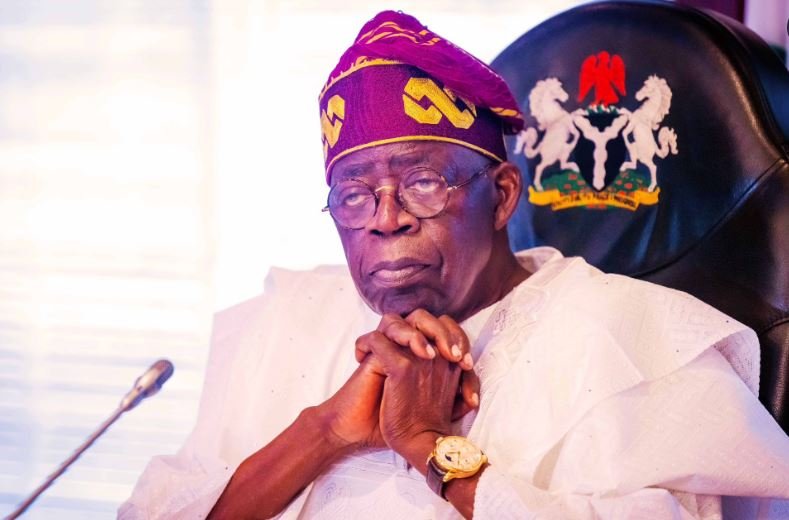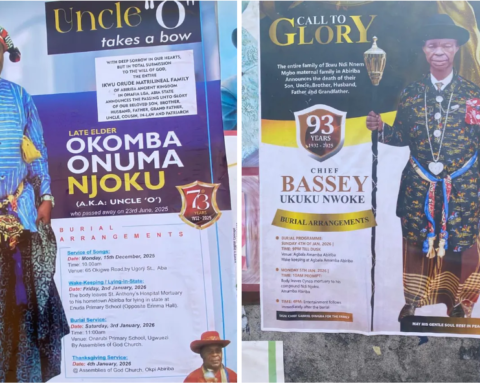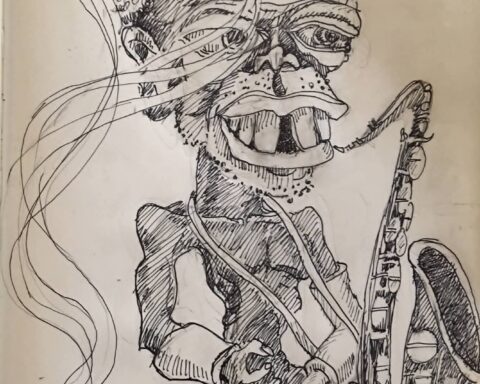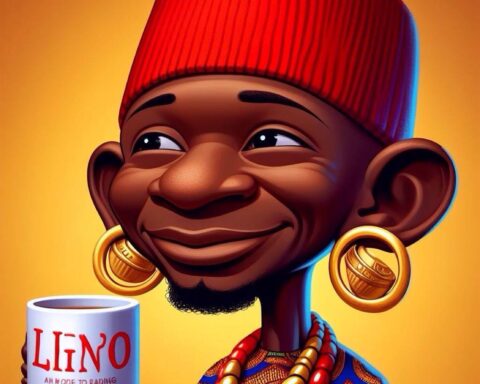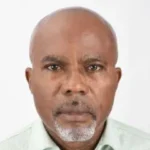Oil industry ‘reform’ cannot be driven by product price increases alone. In fact, that is no reform at all; it is a normal demand and supply reaction that can easily be settled with sufficient product supplies. An oil industry reform which the Tinubu team should pursue is one that prioritizes local production over importation. The constant squabbles by oil sector regulators with Dangote Refinery, in favour of fuel importers, make nonsense of Tinubu’s claim to a new national-interest oil industry narrative. Deregulation should be limited to only local industry operations. Whose interest is served when we can produce enough locally but insist on importing more from outside? Tinubu should end importation. To this end, he must find a solution to the lingering NNPCL’s refineries conundrum.
In remarks on Thursday last week (November 8, to be precise), at the All Nigeria Editors’ Conference (ANEC), which was held in Yenagoa, the Bayelsa State capital, ThisDay Publisher and Chairman of Arise TV, Prince Nduka Obaigbena, noted that as important as the “current economic reforms are to the survival of Nigeria, the future can only be better if the reforms are given a human face.”
According to Obaigbena, while Nigerians should support “the reforms”, the government on its part must explore ways to protect the vulnerable and the poor from the economic shockwaves due to the “ongoing reforms.”
Obaigbena spoke to the heart of the matter, namely, that whatever the reforms are (and that is not to say he doubts there are) they are doomed to fail if what they can offer, even in the interim, is the unbearable hardships that Nigerians have been subjected to as a result.
Even if there are not hints of doubts in Obaigbena’s remarks as to the existence of ‘Tinubu reforms’, there is no doubt that many Nigerians, including the well-informed Obaigbenas of this world, are wondering if there are truly any worth being considered as such.
Reforms, as the term implies, are a set of transformative actions taken by a government or institution with a view to improving on a sector or institution’s service delivery. In the case of Nigeria, what exactly are the reforms the Tinubu Administration is undertaking and crowing about?
Outside the purported removal of ‘fuel subsidy’, which is just another name for ‘fuel price increase’, one is unable to put a finger on any other economic reform that this government is undertaking that is headed towards a desired end.
In point of fact, we had always known that fuel subsidy was a scam. The immediate past government of Muhammadu Buhari paid dizzying amounts in purported fuel subsidy claims to persons and groups that were never identified as the suppliers that had to be paid. Since NNPCL was the sole importer of petroleum products or, at least, must give the nod before any other group or person would import, to whom did it pay to subsidize the country’s petroleum products needs? How did it incur the reported $6bn plus debt that it is purportedly defraying presently? Has anyone ever explained subsidy to the Nigerian public, especially since APC? Apart from the Jonathan presidency during which the names of marketers who received subsidy payments but never supplied products, were published, a reason many of them went for then Finance Minister and current WTO DG’s head, no other government since then has had the courage (more like the sincerity) to identify persons or groups to whom trillions in subsidy payments were made even as the nation’s fuel crisis persisted.
What, then, is the point here? It is that the elaborate and complex money laundering scheme emplaced by the nation’s rapacious political and economic elites, who constantly cream off huge chunks of the national wealth to feather their nests at the expense of the general public, cannot by any means pass as fuel subsidy payments. So, if Tinubu has succeeded in stopping these criminal, phantom payments, that is just as well. For what he has only done is to take the criminal impoverishment of the people from subsidy payment to outlandish petroleum products prices, which have not only impoverished the people but have also made such impoverishment more obvious and diffident. Which is akin to a people finding themselves marooned between the devil and the deep sea.
It is as if Nigerian leaders are just in love with the word ‘reforms’. Practically president or head of state over the years has claimed to be carrying out ‘reforms.’ The bad thing about such claims is that they never really amounted or amount to much in terms of their positive impact on the nation’s development striving.
Indeed, Nigerian leaders have been reforming the country like forever, underscoring the insincerity of all the claims. Reforms – whether political and or socio-economic – should be built upon and consolidated over time not started afresh each time a new person comes to power. Don’t Nigerian reforms ever get completed?
Gowon was ousted in 1975 in a bloodless military putsch led by his brother, the late Joe Garba, because the then military junta claimed he wasn’t reforming politics fast enough.
The late General Murtala Mohammed, the butcher of Asaba, waving the banner of radicalism and a promise to ‘radically’ reform the civil service all but destroyed the Nigerian civil service in the name of reforms. When he began sacking permanent secretaries, he created the tenure uncertainty that has made civil servants steal and sabotage the system in order to provide for the day after retirement. Today, half of the property in Abuja are owned by civil servants, no thanks to Murtala’s impulsive ‘civil service reforms’.
After Murtala, General Obasanjo came in and while he quickly returned the country to civil rule in 1979, he was to give the nation a constitution that centralized everything and a Land Use Decree (Act) that took communities’ mineral resources from them and gave their control to a central government that only uses the wealth from such resources not to develop the communities but to impoverish the people the more.
Then came Shehu Shagari who, before he had had time to run his government, had the military hawks back and knocking rudely on his presidential door: the removed him from power.
The low-energy General Buhari came in, purported to fight corruption by changing the colour of the naira in a bid to catch the ‘corrupt’ and ‘drug dealers,’ but looked the other when an Emir shipped in all of 153 suitcases of money into country. Expectedly, some military adventurists cashed in on Buhari’s all-brawn-no-brain hypocritical regime and ousted him.
In came a wily General Ibrahim Babangida who quickly instituted a political transition programme. However, the self-styled military president used all kinds of subterfuge to manipulate the country into a prolonged transition programme, culminating, eight years later, in the June 12, 1993 presidential election won by the late MKO Abiola but which Babangida inexplicably annulled, putting Nigeria in political tailspin that we are yet to exit.
Babangida was the first to devalue the naira which was at par with the dollar in 1986 until its devaluation from N1-$1 N10 to $1, in a roguish implementation of the Structural Adjustment Plan (SAP), which the IMF sold to the self-styled military president, but which the nation rejected in nationwide public SAP debates.
Since then, the national currency has remained unstable. The good thing about Babangida, however, is that he was the one who opened the air waves for private sector participation in broadcast business and the money market for private sector participation in banking business.
The late General Sani Abacha came and concentrated his ‘reforms’ in the political sphere. He set out to neutralise the opposition to his transmutation designs by making many pay the supreme price. Ironically, Abacha was to become the most sincere in the handling of the fuel subsidy. He told the nation by how much percentage he was going to increase fuel prices, how much was going to be saved from the exercise and how he was going to utilize the savings.
Since Obasanjo returned as civilian president in 1999, it is instructive that the nation’s oil industry has since been defined mainly by the opacity of its administration. The military managed the nation’s better?
In the light of the foregoing, I wager that the problem with Tinubu’s ‘reforms’ is that while there are a few things to credit his predecessors with (Obasanjo’s pensions reforms and Jonathan’s PIA and complete indigenisation of the oil services sector, hitherto dominated by the Halliburtons of this world, for instance), what he is doing does not seem to have an expected, desired end in sight. What exactly are these reforms that his aides crow about every so often and for which they constantly shout critics down – witness Bayo Onanuga’s altercations with former Vice President, Atiku Abubakar?
From the foregoing, it means that the challenge for the president is how to manage public perception about his goals and actions. For that reason, it seems to me that the president should look to addressing the following:
- The devaluation of the naira to the extent that the national currency is heading N2000 to a dollar is not sustainable. The social crises – hunger, unemployment, crime, business collapses, and the like – stemming from the plummeting value of the naira cannot be sustained for much longer. The president and team have to do something about the situation.
- Oil industry ‘reform’ cannot be driven by product price increases alone. In fact, that is no reform all but a normal demand and supply reaction that can easily easily be settled with sufficient product supplies. An oil industry reform which the Tinubu team should pursue is one that prioritizes local production over importation. The constant squabbles by oil sector regulators with Dangote Refinery, in favour of fuel importers, make nonsense of Tinubu’s claim to a new national-interest oil industry narrative. Deregulation should be limited to only local industry operations. Whose interest is served when we can produce enough locally but insist on importing more from outside? Tinubu should end importation. To this end, he must find a solution to the lingering NNPCL’s refineries conundrum.
- CNG should not be pursued as an alternative to PMS but simply as an alternative choice open to those who want to choose it. What the government should pursue is an appropriate pricing regime based on local output. Nigerians should be encouraged to consume more PMS locally not discouraged. Every economy aims first to satisfy local demand for locally produced products, through all manner of incentives, including appropriate pricing regimes, not starve the local market in order to satisfy export markets. Economic growth is spurred first by the volume and quality of goods and services produced and consumed locally.
- The government should go for tax cuts not increases. At a time of economic decline, when businesses are folding up, unemployment is high and wage increases sluggish, the government should go for tax cuts to encourage businesses to stay afloat and to leave more disposable income in the hands of citizens, not tax them practically out of existence.
- He should loosen grip on the political and allow the country to flower politically. He should aim to return to power on the basis of the people’s longing for him because of his performance in this first outing not by any form of subterfuges again, as his election last year is believed to have come by. What Nigeria needs is an atmosphere of peace and harmony not one of hate and acrimony. We have more of the latter now.
In the end, Tinubu’s ‘reforms’ may still become the vehicle in which to drive the country to a new era of prosperity. For now, they are completely inchoate and need to be clearly redefined. Driving along this current trajectory, the reform vehicle will sooner than later experience an engine knock. As it is now, it is already too bad. The engine should not be allowed to completely knock.
